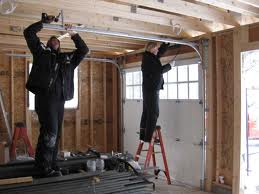
Many people wonder just how a workplace accident claim is processed and how the compensation is paid out. Most work injury claims are handled by their employer's workman's compensation insurance policy.
Many people wonder just how a workplace accident claim is processed and how the compensation is paid out. Most work injury claims are handled by their employer’s workman’s compensation insurance policy.
Let’s take a look at how most of these work accident compensation claims play out in the real world.
I am going to give a scenario that is based on a real world work accident, but I will not provide any names or the specific State that the injury happened. Most every State in the U.S.A. has similar labor laws and you can figure that if you have been hurt at work, the process of receiving money from the workers compensation policy that your employer pays their insurance company for every month will handle your claim or claims in a very similar way.
Here’s what happened and how it all worked out to the benefit of everyone involved, considering the circumstances.
Joe worked for a general contractor. This construction company handled a variety of construction jobs, from the big commercial projects right down to installing just a single window or door for a customer. It was on one of these smaller jobs that Joe was working on when he got hurt.
The company sent him out to install an overhead garage door for one of their longstanding customers. The only real problem that developed was that the fellow employee that was supposed to help him that day called in sick. It was on the schedule and the customer was getting angry about having to wait so long for service so the company’s operations manager sent him out to do the job by himself. Joe being a good and loyal employee of the company for over fifteen years did not complain. He just went to work.
The garage door that he was installing was twelve feet tall. This required a ladder. While on the upper portion of the step ladder he lost his balance and fell, somehow managing to land on his feet. His heels actually. Landing in this way he managed to completely shatter the heel of his right foot.
This is where it gets interesting… or tragic. Depending on your perspective.
Obviously any kind of workplace accident or work injury sustained while on an employer’s payroll will be covered by workman’s comp insurance. And fortunately for Joe, his employer had their insurance policy all paid up. The Doctor at the hospital fixed him up the best he could and sent him home for six weeks to recover.
A problem developed in the healing process such that even after a year, and several surgeries later, Joe could still not get around except with the help of crutches. Fortunately the workers compensation insurance company was still sending him a weekly check.
The insurance company talked about giving him more money for job retraining and offered a few other options, but eventually ended up offering him a workmans comp settlement. This was because they did not want to keep paying medical bills for him and also did not want to keep sending him a weekly check.
Joe’s work accident compensation amounted to somewhere in the neighborhood of $250,000.00. This included all of the medical bills, as well as the weekly payments they made to him for lost wages, plus the final workmans comp settlement which amounted to $120,000.00, which was approximately three years worth of wages.
Now these types of personal injury settlement amounts can vary greatly, but without a personal injury lawyer, (remember Joe was a nice guy) he was happy to accept what seemed to be a ton of tax free money in one big check.
Two years later Joe was broke and still unable to work in the only industry that he had any skills or experience in. Welfare and food stamps. That’s where he is today.
The moral of this story is two fold. Make sure that who you are working for has the proper insurances. This includes liability insurance, and well as workmans compensation insurance.
The liability insurance will often cover things over and above what the workers comp will pay such as bodily injury claims that don’t fall under the normal and everyday coverage that is provided. It also does not hurt to be in contact with a personal injury attorney or work injury lawyer about your options in a case like this and not just accept the first offer the insurance company gives you. The best case scenario would have been to have Joe get some sort of structured settlement where the money is paid out over time.
The second moral is that it certainly does not hurt to have your own disability insurance policy that in most cases will pay over and above what you are going to get as far as work accident compensation from the normal workers compensation insurance that your employer provides. If you are an independent contractor, then you need not only this type of insurance, but also your own people.
Talk to your favorite insurance agent or a company like AFLAC about what extra coverages they can provide for you and your family in the event that you suffer a serious injury that prevents you from going to work.
Return to the Mad Progress home page.

